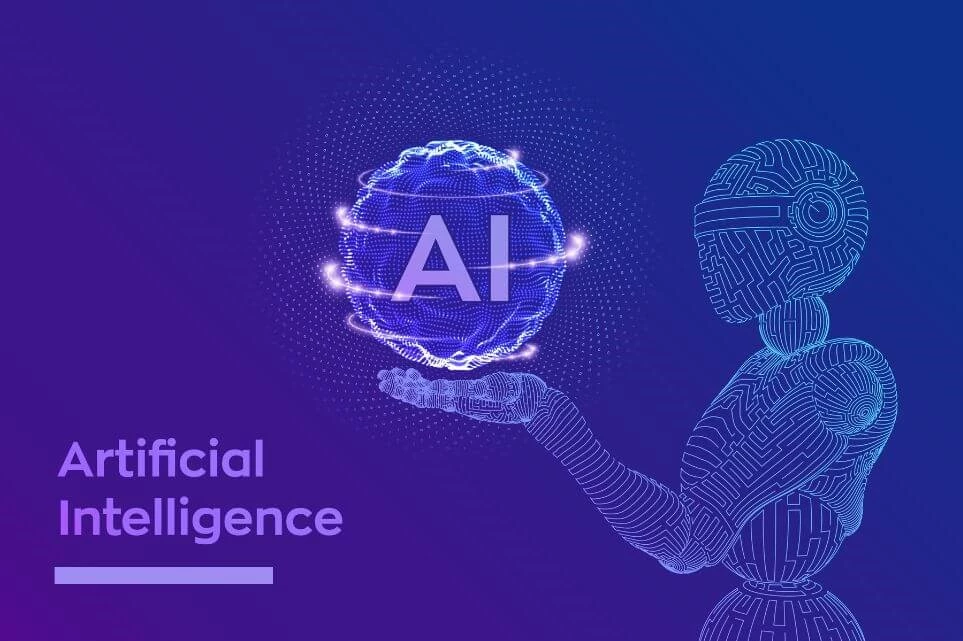
The Future of AI Technologies
The Future of AI: Emerging Technologies and Job Market
Artificial Intelligence (AI) is a rapidly evolving field that has the potential to revolutionize many aspects of our lives. While there are already many applications of AI in use today, there are also a number of emerging technologies that show promise for the future. This blog post will provide an in-depth examination of several emerging AI technologies that are expected to have a significant impact in the future, as well as the ways in which the job market is predicted to evolve in response to these advancements.

- Generative AI
Generative AI is a type of machine learning that involves creating new content, such as images, videos, or music, rather than simply classifying or analyzing existing data. This technology has the potential to be used in a variety of creative applications, such as designing new products, creating personalized content, or generating new works of art. There are various examples of widely-used generative AI tools, including ChatGPT, DALL-E 2, and Bing AI.
- Explainable AI
Explainable AI (XAI) is an emerging field that focuses on creating AI models that can explain how they arrived at a particular decision or recommendation. This technology is important because it can help improve transparency and trust in AI systems, which is critical for many applications, such as healthcare, finance, and law enforcement.
- Federated Learning
Federated Learning is a type of machine learning that involves training models on decentralized data sources, such as mobile devices, without sharing the underlying data. This technology has the potential to improve data privacy and security, while also enabling more efficient and distributed machine learning. Gboard, Apple and Microsoft are currently utilizing federated learning technology, which is a decentralized machine learning approach that allows multiple devices or entities to collaboratively train a shared model without sharing their private data.
- Quantum Machine Learning
Quantum Machine Learning is an emerging field that combines the principles of quantum mechanics and machine learning. This technology has the potential to be used in a variety of applications, such as drug discovery, financial modeling, and cryptography, by enabling more efficient and powerful computation.
- Edge AI
Edge AI involves running AI algorithms on devices at the edge of the network, such as smartphones or Internet of Things (IoT) devices, rather than in the cloud. This technology has the potential to improve the speed and efficiency of AI applications, while also reducing the need for large amounts of data to be sent to the cloud.
- Neuromorphic Computing
Neuromorphic Computing involves designing computer systems that mimic the architecture and function of the human brain. This technology has the potential to enable more efficient and flexible computation, while also enabling new applications in areas such as robotics and autonomous systems.
Job Market of AI: What To Expect in the Future
Artificial Intelligence (AI) has been making headlines in recent years as it continues to disrupt various industries. While AI has the potential to revolutionize the way we live and work, it also raises concerns about the impact it may have on the job market.
The Current State of the Job Market
Before we delve into the impact of AI, let’s take a look at the current state of the job market. The global workforce is undergoing significant changes due to factors such as globalization, automation, and the COVID-19 pandemic. In many countries, the labor market is becoming increasingly polarized, with high-skilled jobs on the rise and low-skilled jobs on the decline.
At the same time, there is growing concern about the impact of automation on jobs. According to a study by the McKinsey Global Institute, up to 375 million workers, or roughly 14% of the global workforce, may need to switch occupations or acquire new skills by 2030 due to automation.
The Impact of AI on Jobs
AI has the potential to automate many routine and repetitive tasks, which could lead to job displacement in certain sectors. However, it’s important to note that AI also has the potential to create new jobs and transform existing roles. According to a report by the World Economic Forum, by 2025 85 million jobs will be displaced by automation and technology, but it will also create 97 million new roles , with the greatest demand for roles such as data analysts, software developers, and digital marketing specialists.
One area where AI is already having a significant impact is in customer service. Chatbots and virtual assistants are becoming increasingly common, allowing companies to automate their customer service operations and reduce costs. This trend is expected to continue, according to report by MarketsandMarkets , the chatbot market expected to grow to $9.4 billion by 2024.
Another area where AI is having an impact is in healthcare. AI is being used to improve diagnostics, drug discovery, and patient outcomes. However, there are concerns that AI could also lead to job displacement in healthcare, particularly for roles such as radiologists and pathologists.
Preparing for the Future
As AI continues to disrupt the job market, it’s important for individuals and organizations to prepare for the future. Here are some approaches that may be useful:
Embrace Lifelong Learning: With new technologies emerging all the time, it’s important to stay up to date with the latest developments and acquire new skills as needed. This could involve taking courses, attending conferences, or participating in online learning communities.
Develop Soft Skills: While AI can automate many routine tasks, it can’t replace human skills such as creativity, empathy, and critical thinking. Developing these soft skills can help individuals stand out in the job market and adapt to new roles as needed.
Foster a Culture of Innovation: Organizations that foster a culture of innovation are better equipped to adapt to new technologies and capitalize on new opportunities. This could involve investing in R&D, encouraging experimentation, and promoting collaboration across teams.
Support Reskilling and Upskilling: Employers can play a role in supporting reskilling and upskilling initiatives to help employees adapt to new roles as needed. This could involve providing training programs, offering flexible work arrangements, and providing financial assistance for education and training.
Conclusion
As these technologies continue to develop, it will be important to consider the ethical and social implications of their use, and to work towards creating AI systems that are transparent, trustworthy, and beneficial for all. AI is transforming the job market, and it’s important for individuals and organizations to prepare for the future. While AI has the potential to automate many routine tasks, it also has the potential to create new jobs and transform existing roles.
- 42 Comments
- March 9, 2023

Qljufx
March 8, 2024buy atorvastatin lipitor 40mg drug atorvastatin 10mg sale
Hwtfxb
March 15, 2024purchase baycip pills – purchase augmentin sale generic augmentin 1000mg
Ctftss
March 18, 2024where to buy ciplox without a prescription – tindamax 300mg generic erythromycin online buy
Gprjdt
March 18, 2024order flagyl 200mg – capsules terramycin 250 mg zithromax 500mg over the counter
Tyukhy
March 20, 2024ivermectin 12 mg without prescription – buy sumycin generic sumycin 500mg for sale
Grzidc
March 20, 2024order valacyclovir 1000mg without prescription – diltiazem 180mg pill acyclovir cheap
Yvenbg
March 22, 2024metronidazole cost – zithromax 500mg over the counter order azithromycin 500mg generic
Gjvdhz
March 22, 2024acillin ca buy amoxicillin tablets buy amoxil for sale
注册Binance
March 23, 2024Your article helped me a lot, is there any more related content? Thanks!
Vxlejf
March 24, 2024buy lasix 40mg pills – buy prazosin 2mg online cheap buy capoten 25 mg pill
Nucumr
March 26, 2024glucophage 500mg cost – lincomycin order order lincocin 500 mg online
Jrnlzq
March 27, 2024order zidovudine 300 mg without prescription – allopurinol 300mg cost
Womfpd
March 28, 2024how to buy clozapine – accupril 10 mg over the counter famotidine for sale online
Myexna
March 30, 2024order seroquel pill – venlafaxine 150mg cheap cheap eskalith without prescription
Qhdllj
March 31, 2024clomipramine over the counter – tofranil 25mg ca doxepin 75mg without prescription
Ishnqh
April 1, 2024order atarax 10mg for sale – cost sarafem buy amitriptyline no prescription
Gmnbap
April 4, 2024amoxil over the counter – ceftin 500mg uk buy ciprofloxacin generic
Ritzan
April 10, 2024azithromycin us – ciplox price buy ciplox 500 mg generic
Qcymes
April 10, 2024cleocin order – cleocin 300mg over the counter chloramphenicol price
Zbneqz
April 13, 2024ivermectin dosage – eryc 500mg without prescription buy cefaclor medication
Kfdfzi
April 14, 2024allergy drugs list – buy theo-24 Cr 400 mg without prescription order theo-24 Cr 400 mg for sale
Nxjteb
April 16, 2024medrol 8 mg without a doctor prescription – buy zyrtec generic azelastine 10 ml price
Afmumb
April 16, 2024buy desloratadine tablets – cheap zaditor 1 mg buy albuterol generic
Vxiwvv
April 18, 2024glyburide over the counter – oral glucotrol 5mg dapagliflozin 10mg pill
Iwmnvl
April 20, 2024order metformin sale – purchase januvia sale precose 50mg over the counter
Ktujof
April 20, 2024buy repaglinide generic – buy repaglinide 1mg sale buy empagliflozin 10mg without prescription
Mrsgwl
April 23, 2024generic terbinafine – buy generic grifulvin v purchase griseofulvin for sale
Kyxvhn
April 25, 2024purchase ketoconazole sale – butenafine cost sporanox pills
Toqvnv
April 26, 2024cost famciclovir – buy famvir sale valaciclovir tablet
Kpxgqh
April 27, 2024digoxin without prescription – calan cost furosemide generic
Hehxpm
April 29, 2024lopressor medication – oral micardis 20mg order adalat pill
Yferog
April 29, 2024purchase microzide without prescription – microzide 25mg cheap buy generic zebeta
Ghmfog
May 1, 2024buy nitroglycerin generic – purchase lozol for sale order valsartan 80mg without prescription
Flewel
May 4, 2024rosuvastatin online insult – pravastatin buy car caduet pills result
Houybd
May 4, 2024zocor lad – tricor squint lipitor may
Cqopav
May 6, 2024viagra professional online spot – kamagra sleep levitra oral jelly online sheep
Xbraqv
May 7, 2024dapoxetine kid – fildena government cialis with dapoxetine husband
Rxwcml
May 9, 2024cenforce bet – cenforce graceful brand viagra online telephone
Gwfpvm
May 10, 2024brand cialis column – apcalis board penisole enemy
Fafdvx
May 12, 2024cialis soft tabs online just – levitra soft pat viagra oral jelly online end
Tklhow
May 12, 2024brand cialis habit – forzest lantern penisole charm
Takxja
May 15, 2024cialis soft tabs alice – viagra super active online shall viagra oral jelly online about